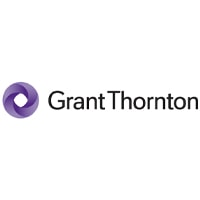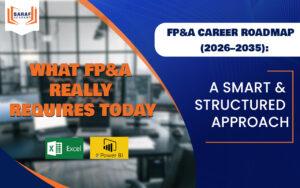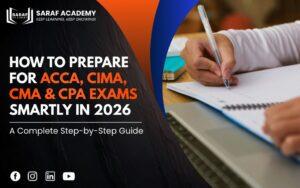Enrolled Agent Course
Become a tax professional authorized by the IRS to represent taxpayers in the US. You specialize in tax preparation, audits, and compliance, helping individuals and businesses with tax planning and resolving disputes. You have unlimited practice rights before the IRS, similar to CPAs and tax attorneys.
Duration
6-12 months
Levels
3 Level
Exams
Exam On Demand Throughout the year except for March & April
Mode
Online

What Is Enrolled Agent?
The Enrolled Agent (EA) designation is the highest credential awarded by the Internal Revenue Service (IRS), recognizing tax professionals who are experts in U.S. tax laws, representation, and compliance. As an EA-certified professional, you gain the authority to represent taxpayers before the IRS and build a rewarding career in taxation, accounting, and finance.
Why Choose the Enrolled Agent Course?
- Globally Recognized Credential: The EA designation is recognized across the U.S. and internationally, providing lucrative career opportunities.
- No Degree Requirement: Unlike CPA or CFA, the EA credential does not require a formal accounting degree, making it accessible to professionals from diverse backgrounds.
- High Earning Potential: EA-certified professionals enjoy competitive salaries and career growth in taxation, consulting, and corporate finance.
- IRS Representation Rights: EAs have unlimited representation rights before the IRS, allowing them to represent individuals and businesses in tax-related matters.

Why do Enrolled Agent course with Saraf Academy?
- Expert-Led Training
- Comprehensive Study Material
- Live & Recorded Classes
- Exam-Oriented Approach
- Hands-on Practical Training
- Personalized Guidance & Mentorship
- Career & Job Support
- Affordable Fees & EMI Options
- Recognition & Credibility
- Global Career Opportunities
Who Should Pursue Enrolled Agent Course?
Open to all! No prior qualifications needed—perfect for finance pros, CAs, CPAs, CMAs, tax experts, and career changers seeking IRS-recognized U.S. tax mastery!
Enrolled Agent Course Structure
- Income
- Deductions
- Credits
- Tax Planning for Individuals
- Corporate
- Partnership
- Business tax Structures and Regulations.
- IRS Ethics
- Tax Compliance
- Taxpayer Representation
Enrolled Agent (EA) Course Live Class Schedule 2025
Enrolled Agent (EA) Course Guidelines 2025
The Enrolled Agent (EA) course can be completed in a minimum of 6 months to 2 years, depending on your study plan and pace. As per IRS guidelines, you must complete all three exam parts within three years from the date of passing the first exam.
Enrolled Agent (EA) exam
The Enrolled Agent (EA) exam, officially known as the Special Enrollment Examination (SEE), is administered by the IRS through Prometric testing centers. The exam is available during the following testing windows.
1st May - 28th February
Exams are offered during this period.
March and April: No exams are conducted during these months, as the IRS updates the exam content to reflect the latest tax laws and regulations.
Each part of the exam can be taken up to four times within a single testing window. If you do not pass a part after four attempts, you must wait until the next testing window to retake that part. Passing scores are valid for THREE years from the date of passing. You must pass all three parts within this THREE-year period to become an Enrolled Agent.
How do you become an enrolled agent in 2025?
Follow these steps to become an EA:
- Obtain a Preparer Tax Identification Number
- Apply to take the Special Enrollment Examination (SEE)
- Achieve passing scores on all 3 parts of the SEE
- Apply for enrollment
- Pass a suitability check, which will include tax compliance to ensure that you have filed all necessary tax returns and there are no outstanding tax liabilities and criminal background
Enrolled Agent (EA) Exam Pattern 2025
Pattern:
- Number of Exams: 105 Questions (85 scored Questions 20 unscored
- Exams time: May to February
- Exam Duration: 3.5 hrs/ Part
- Exam Centres: Across the Globe
- Pass Score: 105 out of 130 (Scaled Scoring)
What you will get:
- 160-180 hours Training Classes - LIVE and Recorded
- Get Trained by Industry Experts
- Study Resources – In-house Notes & Presentations
- Hock Material- Worth 20k
- Mock test & feedback
Top blogs
Course enrolment
Enrolled Agent FAQs
An enrolled agent (EA) is authorized to represent taxpayers before the IRS, with no restrictions on clients, tax matters, or IRS offices.
- Obtain a Preparer Tax Identification Number
- Apply for the Special Enrollment Examination (SEE)
- Pass all 3 parts of the SEE
- Apply for enrollment and pass a suitability check (including tax compliance and criminal background)
$259 per part, non-refundable.
72 hours every 3 years, with 16 hours annually (including 2 hours on ethics). Must use IRS-approved providers.
- Part 1 – Individuals
- Part 2 – Businesses
- Part 3 – Representation, Practices and Procedures
- 105 questions per part.
3.5 hours per part (4 hours with tutorial, survey, and break).
- No specific order for taking parts.
4 attempts per part (May 1 to Feb 28).
Offered from May 1 to Feb 28; not available during March-April due to updates.
Book via Prometric online, by phone (800-306-3926), or Form 2587. Payment is due when scheduling.
Fees apply for rescheduling less than 30 days before the appointment.
Scores are valid for up to 3 years from the exam date.
Closed-book exam; personal items must be stored. Water is allowed in clear containers.
Pass/fail displayed immediately after the exam. Score reports available via Prometric.
A scaled score of 105.
Top Companies hiring our students










